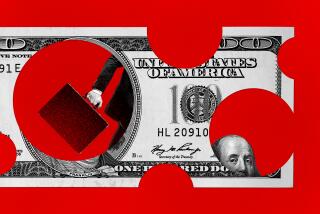Imagine a Kinder, Gentler IRS
- Share via
Imagine receiving a call from the Internal Revenue Service without getting the feeling that its agents are about to strap you to a torture rack. Imagine being treated by the IRS as a customer rather than an adversary, as taxpayers too often believe they are. Imagine having some recourse if the IRS improperly seizes your property or freezes a bank account.
Too much to ask? Not necessarily. A 17-member national commission created by Congress has just completed a yearlong study on the federal taxing agency that could revolutionize the way the IRS functions.
The report of the National Commission on Restructuring the Internal Revenue Service proposes a variety of reforms that seek, generally, to overhaul the culture of the IRS. Sen. Bob Kerrey (D-Neb.), co-chairman of the commission, said the proposed reforms are based on a simple idea: “The IRS works for the taxpayers, not the other way around.”
The recommendations include the creation of a new IRS governing board, a five-year term for the IRS commissioner, imposition of modern management practices and the creation of a means of restitution--up to $100,000--for any taxpayer found to have been treated improperly or erroneously by the agency.
Many of the proposals were taken from California’s taxpayer bill of rights, adopted by the state several years ago in legislation sponsored by Ernest J. Dronenburg Jr., chairman of the state Board of Equalization. Dronenburg also served as a member of the IRS reform commission.
The national commission’s findings appear to have strong bipartisan support in Congress. They will be written into legislation that could go to Congress soon and possibly be adopted this year, Dronenburg said.
That’s an ambitious schedule. And even if Congress passes the reforms this year, it will take time for them to have a real impact. But a start must be made. The success of the U.S. tax system lies in its voluntary nature. To the extent that the IRS angers and alienates taxpayers, that critical foundation is eroded. The IRS cannot afford much more erosion.
More to Read
Get the L.A. Times Politics newsletter
Deeply reported insights into legislation, politics and policy from Sacramento, Washington and beyond. In your inbox twice per week.
You may occasionally receive promotional content from the Los Angeles Times.










